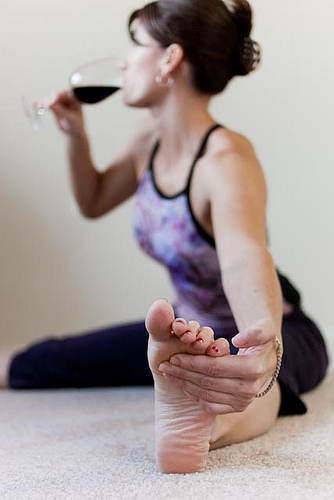 With alcohol being the most common drug of choice one has to wonder what effects it has on your athletic performance.
With alcohol being the most common drug of choice one has to wonder what effects it has on your athletic performance.
Sorry folks but this blog has to be written.
For the most part the people that I run into in the gym seem to have their acts together as far as their alcohol consumption is involved. But every once in a while during an early morning workout I’ll catch a whiff of someone’s partying the night before.
Now far be it for me to judge anyone on how they use their down time to kick back and relax. But if your goals include chasing your PR’s and pushing your body as far as it can go then realize that your nutritional intake includes EVERYTHING you digest including what you drink.
In a position statement issued by the American College of Sports Medicine, the ACSM states that “alcohol appears to have little or no beneficial effect on the metabolic and physiological responses to exercise. Further, in those studies reporting significant effects, the change appears to be detrimental to performance.”
Research at the University of Georgia states that-
Alcohol will not improve muscular work capacity and results in:
- Decrease in overall performance levels
- Slowed running and cycling times
- Faster fatigue during high-intensity exercise
Adequate hydration is crucial to optimal performance. The diuretic property of alcohol can result in:
- Dehydration and significantly reduced aerobic performance
- Impaired 800 and 1500 meter run times
- Increased health risks during prolonged exercise in hot environments
Ok so you don’t drink before you go to the gym or before your run. What about the day after. The same research as above showed that “drinking on the day or night before athletic activity hinders physical conditioning progress, and exercising with a hangover has been shown to significantly decrease performance capacity by as much as 11%”
So, ok I hear it now. “Hey I drink and I’m doing just great”. Well think about how much better you would be doing if you didn’t.
For more Health & Fitness information please visit our ongoing blog at